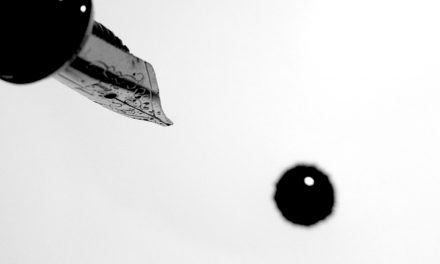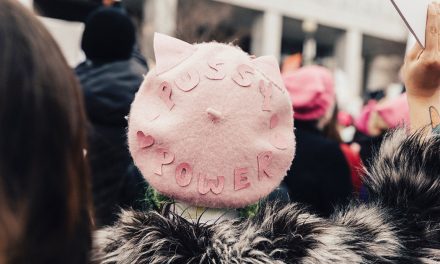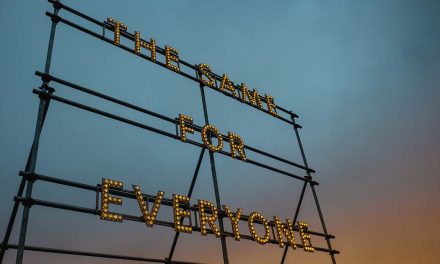IN PROTEST
★ ★ ★ ★
A WILD WORD EDITORIAL
The plight of refugees is worldwide, and in a special feature, over the next three days, The Wild Word will have writing, art and music in response, and in protest, to the current refugee policy by the Australian government.
Last week, a 23-year-old Iranian man, Omid Masoumali, died after setting himself alight in protest to his continued detention on Nauru, an offshore detention centres run by the Australian government.
Before he set himself alight Omid Masoumali proclaimed, “This action will prove how exhausted we are. I cannot take it any more.”
I grew up in Ireland, a country accustomed to protest. As a child of the 80s the name of Bobby Sands, an Irish republican hunger striker, was one even I as a six-year-old knew. He, along with nine other prisoners, eventually died of starvation under Margaret Thatcher’s reign.
I also remember the Dunnes stores workers who refused to handle goods that came from South Africa in protest of apartheid. The bold integrity and fight of those 10 working-class women and one man.
I was raised to believe that protest is a basic right. That in the face of injustice and oppression, we can and must speak out. If we can.
And non-violent protest is probably the most powerful of all.
Such forms of protest such as Masoumali are always, ALWAYS, because core human rights have been violated, because people have not been treated like people, like humans, but less than. History has taught us that.
Think about the quiet dignity of Rosa Parks as she sat at the front of the bus and the march on Washington by Martin Luther King.
Think of Gandhi on the Salt March, leading thousands in civil disobedience.
Think about the raised fists of Tommie Smith and John Carlos at the 1968 Olympic Games.
Think of that lone figure in front of the tank at Tiananmen Square.
We are thinking of them all, this week at The Wild Word.
Kusi Okamura
Editor, The Wild Word magazine
I feel ashamed to be Australian this week.
I’m usually proud to tell people where I hail from—a democratic, moderate country with beautiful people and unique nature.
But when I hear that two young people, a young Somalian woman and an Iranian man, have set themselves on fire because my government is imprisoning them indefinitely, what else can I feel but shame for my country?
You probably haven’t heard of Nauru, the small pacific island where these horrific events unfolded, resulting in the death of Omid, an asylum seeker from Iran, last week, and the hospitalization of the young Somali woman this week.
But it’s a name Australians have long been aware.
It is our nation’s current burden of shame.
This is where the Australian government “processes” asylum seekers that they deem to have come into Australia illegally. This is where already desperate people, fleeing for their lives, have been locked up, and feel such desperation that setting themselves on fire seems like the only form of political protest.
Like many other ordinary Australians I have been moved by the plight of these people. And so now I write.
I have been trying to imagine what these people must be feeling.
The kind of despair and horror that takes over your soul, so that you believe the best exit is to set fire to your own body—that the physical pain is better than the pain of existing in that place.
I try to imagine what someone feels as they take a needle and jab it through their lips, sewing them together for a hunger strike.
I try to imagine what a mother must feel, as she squeezes onto a crowded boat meant to carry 5 and now housing 25, with her child held tightly to her body, believing that the treacherous waters that lie before them are better than the dark terrors they are fleeing from.
How desperate must someone be to willingly, knowingly risk all this?
I am sure my mind falls short of the real pain these people are feeling, but my imagination fails me altogether when I try to understand how anyone can believe that these are not real refugees—that someone would go through all of that simply to “trick” their way into a better country.
Nauru is not the only place Australia is detaining people.
There is another off-shore detention centre in Papua New Guinea on Manus Island, after a devil’s deal that both governments agreed to in 2013.
But just last week, PNG’s Supreme Court ruled that detention of asylum seekers on Manus Island is illegal.
Take a moment to Google these places.
Nauru is a ravaged island, with sparse vegetation, surrounded by the kind of ocean and currents that make it an impregnable prison.
Manus Island, by contrast is a tropical hell off the PNG mainland, isolated and impoverished.
The people in these places, unlike prisoners serving a jail term, do not know how long they will be forced to stay there.
The conditions are awful. We know this.
The detainees regularly protest—hunger strikes, riots, self-harm and suicide attempts are common. Doctors and health-care professionals working there say that people’s mental and physical health is at risk.
The Australian government’s response was to make it illegal for staff to disclose any information about asylum seeker healthcare, at the risk of two years’ jail.
Bravely, doctors have spoken out against this despotic law. In Melbourne, doctors refused to discharge children in their care, if it meant that they would go back to detention centers.
Let me be clear.
This detention and inhumane treatment of persecuted peoples is a clear and deliberate policy by the Australian government to deter refugees arriving by boat.
They are detaining people already fleeing persecution in inhumane conditions as a warning signal to other desperate people in need.
They have stated multiple times that no one who arrives in Australia by boat will be taken in. They cite the many tragic deaths that occur when desperate people entrust their lives to unscrupulous people smugglers.
As if that justifies their inhumane and unconscionable solution.
There have been rumours that asylum seekers are being sent back to places where they were not safe.
There have been rumors of Australian government officials paying boats to turn around out of Australia waters.
But the reality is worse than the rumors.
The reality is that despite several changes of government and Prime Ministers, despite Australians voicing their protest, innocent people are still in these camps, harming themselves in the hope that someone will listen.
There have been brave acts of resistance among Australians. Ordinary people have joined the doctors and the protest groups, urging the government to “Let them stay”. All over the country, schools and churches and regular people made “Let them stay” signs and shared their willingness to open their hearts and their country to the asylum seekers.
They prevented 150 people including 37 babies, from being sent back to detention centers after being hospitalised on the Australian mainland. These families have been released into community detention, and still face being sent back when their medical treatment ends, but it is a small taste of what we can do when we speak up together.
It is time politicians realized that they cannot simply lock the “problem” away offshore.
Let us continue to raise our voices in protest, and tell our government that the people in these centers need to be brought to Australia and treated as humans, fellow people in need of help, mercy and justice.
The Australian government has had to apologize for national shame before.
It has had to apologize to our indigenous peoples for government policies that went far beyond disgraceful, and were inhuman and destructive.
I hope that in the very near future, we will have a government brave enough to listen to its people, apologize to detainees on Nauru and Manus Island for the way they have been treated, and to finally set things right.
Erin O’Loughlin
Erin O’Loughlin is the Assistant Editor of The Wild Word magazine. Originally from Australia, she has lived all over the world including Japan, South Africa and Italy. Her fiction has been published by Leopardskin & Limes, Brilliant Flash Fiction and FTB Press. She lives in Berlin, Germany.




























Brave, strong words. Thank you. May there be peace. May we all behave in a manner befitting our true nature, LOVE.
Well done Kusi. Love the idea of remembering our proud history of protest. Especially today, Bobby Sands anniversary.